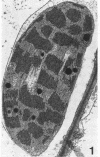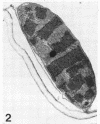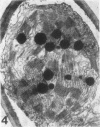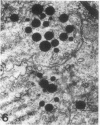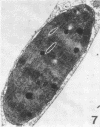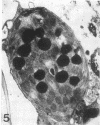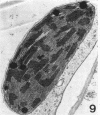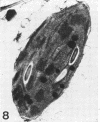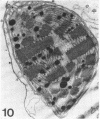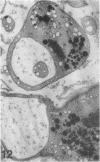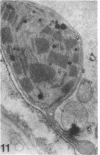Abstract
The ultrastructure of mesophyll chloroplasts in full-nutrient and mineral-deficient maize (Zea mays) leaves was examined by electron microscopy after glutaraldehyde-osmium tetroxide fixation. Nitrogen, calcium, magnesium, phosphorus, potassium, and sulfur deficiencies were induced by growing the plants in nutrient culture. Distinctive chloroplast types were observed with each deficiency. Chloroplasts from nitrogen-deficient plants were reduced in size and had prominent osmiophilic globules and large grana stacks. Magnesium deficiency was characterized by the accumulation of osmiophilic globules and the progressive disruption of the chloroplast membranes. In calcium deficiency, the chloroplast envelope was often ruptured. Chloroplasts from potassium- or phosphorus-deficient plants possessed an extensive system of stroma lamellae. Sulfur deficiency resulted in a pronounced decrease of stroma lamellae, an increase in grana stacking, and the frequent occurrence of long projections extending from the body of the chloroplast. These morphological changes were correlated with functional alterations in the chloroplasts as measured by photosystem I and II activities. In chloroplasts of the nitrogen- and sulfur-deficient plants an increase in grana stacking was associated with an increase in photosystem II activity.
Full text
PDF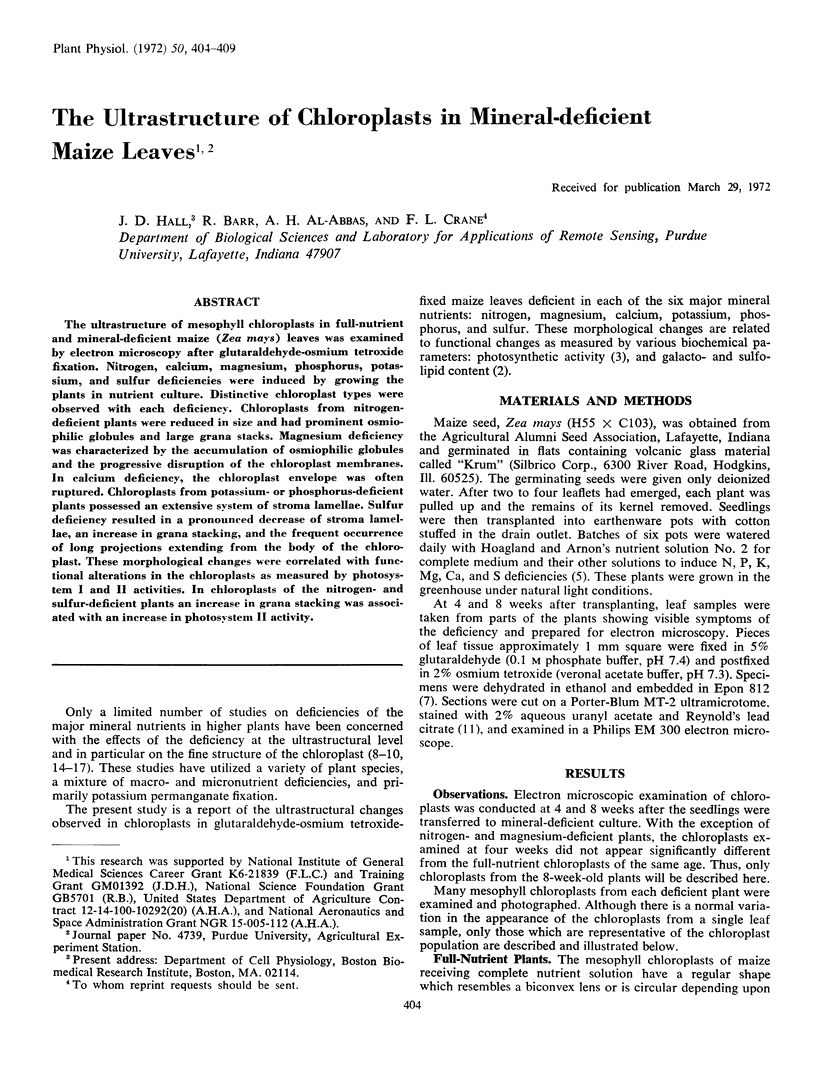
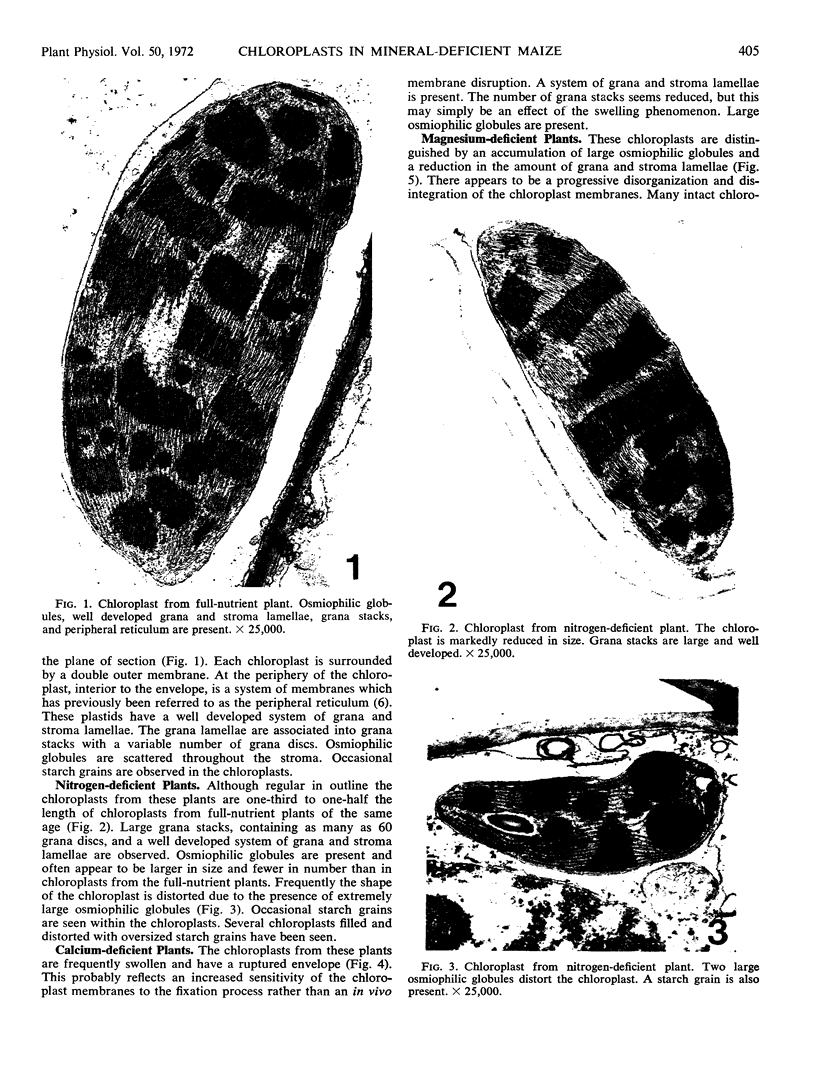
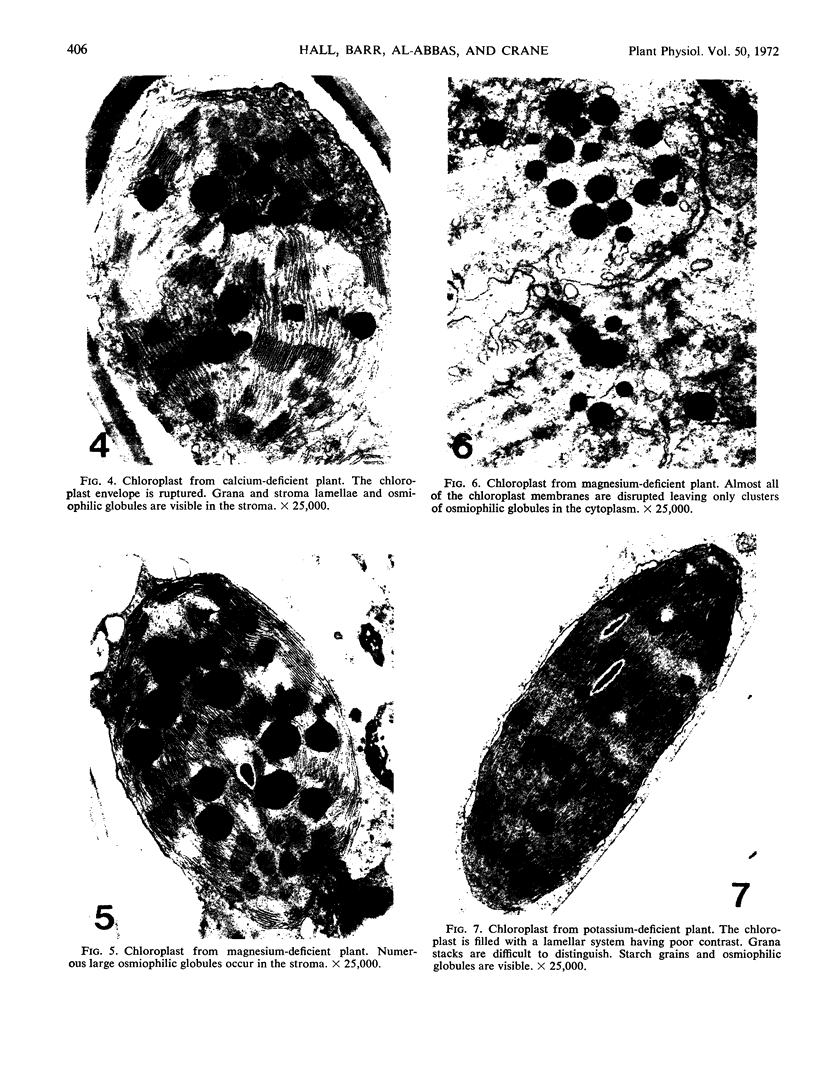
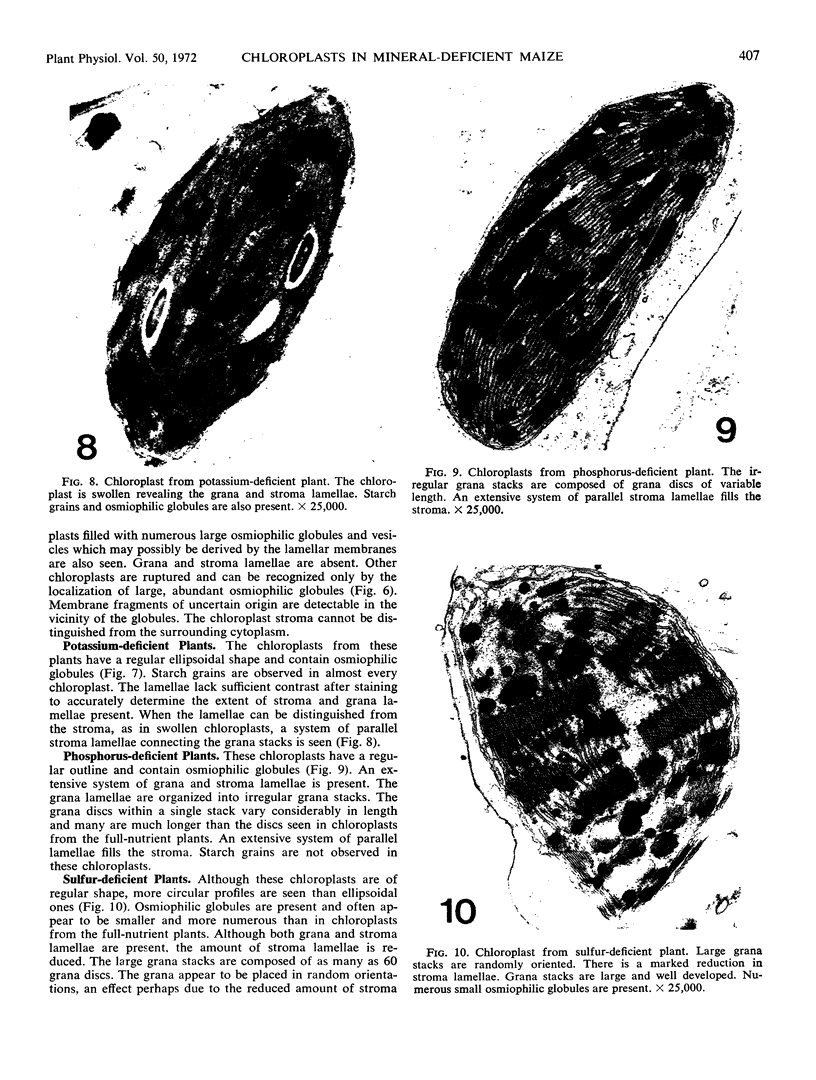
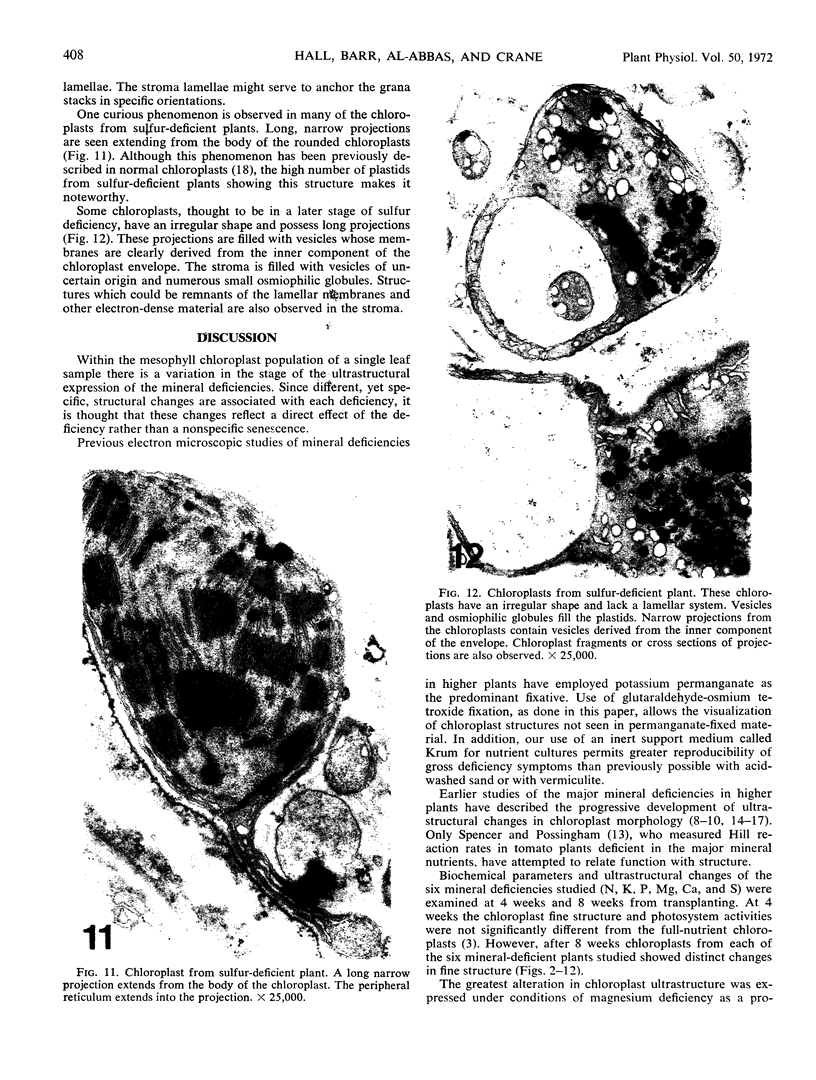
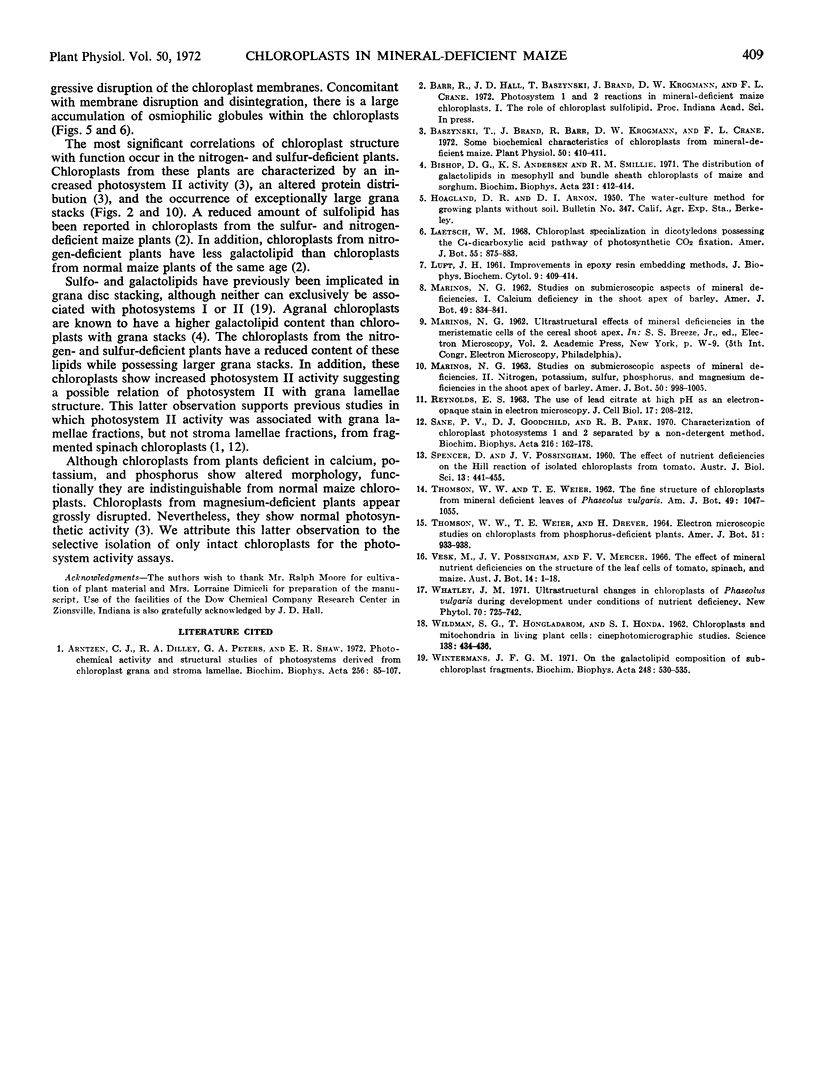
Images in this article
Selected References
These references are in PubMed. This may not be the complete list of references from this article.
- Arntzen C. J., Dilley R. A., Peters G. A., Shaw E. R. Photochemical activity and structural studies of photosystems derived from chloroplast grana and stroma lamellae. Biochim Biophys Acta. 1972 Jan 21;256(1):85–107. doi: 10.1016/0005-2728(72)90165-x. [DOI] [PubMed] [Google Scholar]
- Baszynski T., Brand J., Barr R., Krogmann D. W., Crane F. L. Some Biochemical Characteristics of Chloroplasts from Mineral-deficient Maize. Plant Physiol. 1972 Sep;50(3):410–411. doi: 10.1104/pp.50.3.410. [DOI] [PMC free article] [PubMed] [Google Scholar]
- Bishop D. G., Andersen K. S., Smillie R. M. The distribution of galactolipids in mesophyll and bundle sheath chloroplasts of maize and sorghum. Biochim Biophys Acta. 1971 Mar 16;231(2):412–414. doi: 10.1016/0005-2760(71)90157-3. [DOI] [PubMed] [Google Scholar]
- REYNOLDS E. S. The use of lead citrate at high pH as an electron-opaque stain in electron microscopy. J Cell Biol. 1963 Apr;17:208–212. doi: 10.1083/jcb.17.1.208. [DOI] [PMC free article] [PubMed] [Google Scholar]
- Sane P. V., Goodchild D. J., Park R. B. Characterization of chloroplast photosystems 1 and 2 separated by a non-detergent method. Biochim Biophys Acta. 1970 Aug 4;216(1):162–178. doi: 10.1016/0005-2728(70)90168-4. [DOI] [PubMed] [Google Scholar]
- Wildman S. G., Hongladarom T., Honda S. I. Chloroplasts and Mitochondria in Living Plant Cells: Cinephotomicrographic Studies. Science. 1962 Oct 19;138(3538):434–436. doi: 10.1126/science.138.3538.434. [DOI] [PubMed] [Google Scholar]



